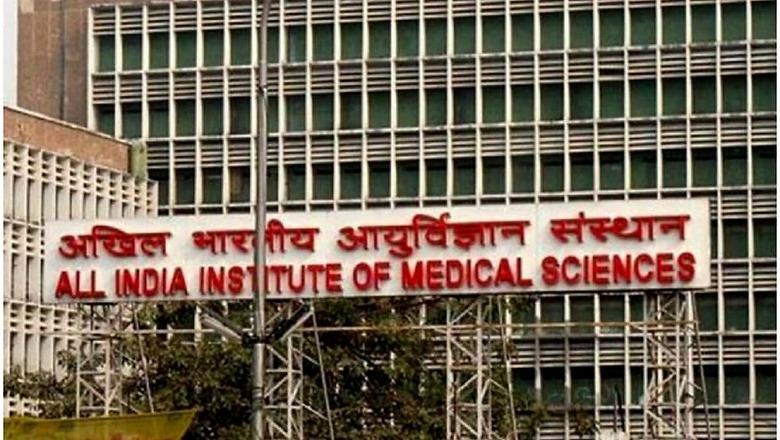
views
Convalescent plasma therapy did not show benefit in reducing mortality risk among COVID-19 patients, according to an interim analysis of a randomised controlled trial done at AIIMS here to assess the efficacy of this mode of treatment.
The therapy involves taking antibodies from the blood of a person who has recovered from COVID-19 and transfusing those into an active coronavirus infected patient to help kickstart the immune system to fight back the infection.
AIIMS Director Dr Randeep Guleria told PTI on Thursday no clear mortality benefit of convalescent plasma therapy was seen during a trial conducted among 30 COVID-19 patients.
During the trial, one group of patients was given convalescent plasma therapy along with the standard supportive treatment while the other group only received standard treatment. The number of fatalities recorded in both the groups was equal and there was not much clinical improvement in the condition of patients, he said.
"However, this is just an interim analysis and we need to do a more detailed evaluation to see if any sub-group may benefit from plasma therapy," Dr Guleria said.
He also underlined that plasma has to be tested for its safety and should have sufficient antibody to be useful to COVID-19 patients.
The efficacy of convalescent plasma therapy in moderate to severe coronavirus-infected patients was discussed in the third National Clinical Grand Rounds (CGR) on COVID-19 held on Wednesday.
"Plasma is safe. As far as its efficacy is concerned, we do not have a green signal yet. So the clinical use has to be very judicious and within the ambit of national guidelines," Dr Monish Soneja, additional professor in the Medicine department at AIIMS, said at the webinar.
Convalescent plasma therapy has been listed as an investigational therapy for off-label use in coronavirus infected patients because as of now there is no conclusive evidence for its efficacy, Dr Soneja said.
About the initial findings of the randomised controlled trial, Soneja said, "Convalescent plasma is not a magic bullet."
It may be used particularly in early moderate stage of the disease. There may be a subset of patients with certain characteristics who may benefit from plasma, he said, adding, "This is a work in progress as we do not know those characteristics."
The findings highlight that relatives of the patients should not insist on plasma therapy until and unless the treating doctor considers the patient fit for it and where he may think that the mode of treatment would be beneficial, Dr Neeraj Nischal, associate Professor in the department of medicine at AIIMS, said.
He said even if the therapy has some role, then that is in the early stage of the disease. But for plasma therapy to be effective, plasma must contain a sufficient amount of neutralizing antibody against that infection, the doctor said.
"This therapy also carries risks such as inadvertent transfer of blood-borne infections and reactions to serum constituents, including immunological reactions such as serum sickness, that may worsen the clinical condition," Dr Nischal said.
According to the Clinical Management Protocols for COVID-19 issued by the Union Health Ministry, off-label convalescent plasma may be considered for COVID-19 patients with moderate disease who are not improving, which means oxygen requirement is progressively increasing, despite the use of steroids.
The use of off-label convalescent plasma for treating coronavirus patients in the moderate stage of the illness has been included under "investigational therapies".
ABO compatibility and cross-matching of the donor plasma is a prerequisite while considering convalescent plasma, the health ministry has said.
The recipient should be closely monitored for several hours after transfusion for any adverse events and its use should be avoided in patients with immunoglobulin A deficiency or immunoglobulin allergy.
"The dose is variable ranging from 4 to 13 ml/kg - usually 200 ml single dose given slowly over not less than two hours," the Clinical Management Protocol stats.




















Comments
0 comment